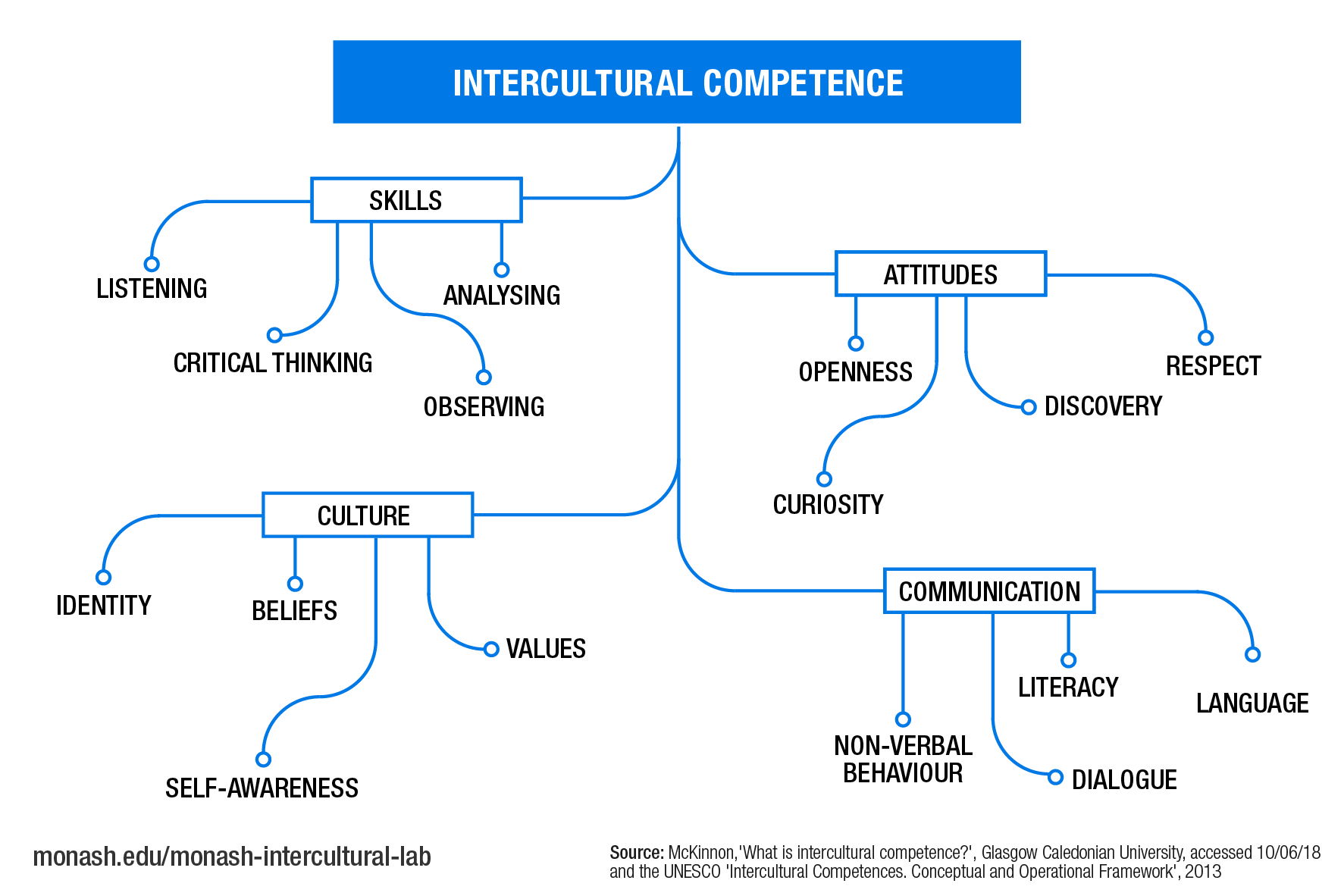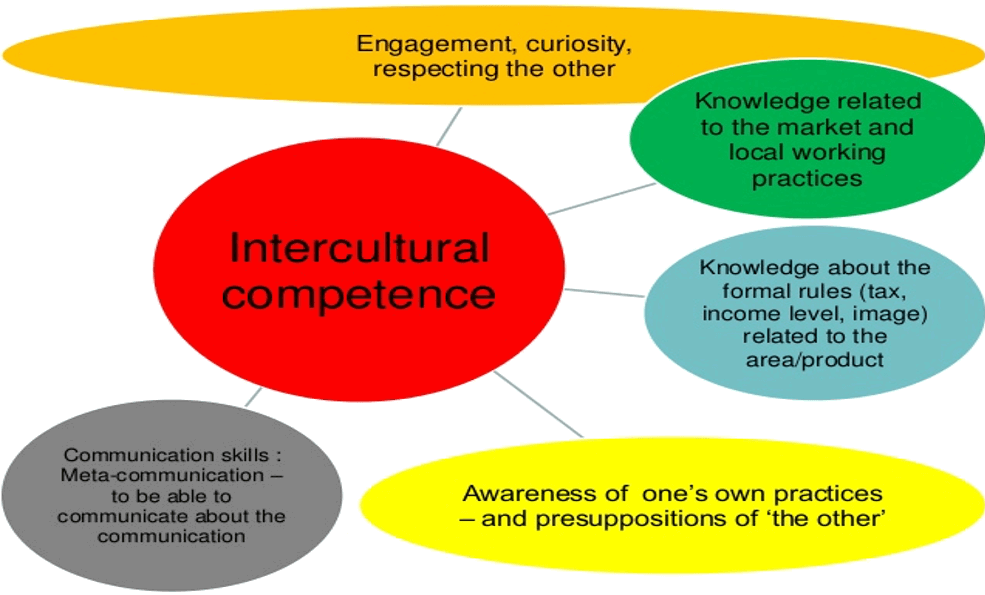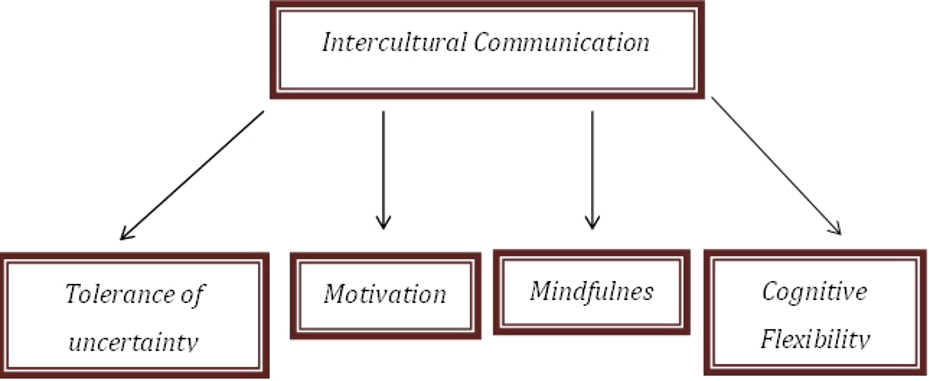Intercultural Competence 🌐
Intercultural Competence

Culture is a way of a group' life. It consists of the ordinary actions, principles, morals, verbal, and living experiences shared by the members of a specific culture.
Intercultural Competence is a proper way in which we interact with those who are socially dissimilar to us. Also, It is a series of mental, emotional, and social abilities.
Such abilities support for positive interaction with people from different cultures. So, people behave or express these abilities through their performance at home or while travelling abroad.
In a nutshell, Intercultural Competence supports us in growing a mutual understanding performance.
Elements of Intercultural Competence
The important elements of Intercultural Competence are; Motivation, Mindfulness, Intellectual Flexibility, and Tolerance for Insecurity.
1. Motivation
Motivation indicates an individual's wish to stand-in intercultural associations. It can also be inherent or extrinsic. When someone has a vigorous interest, that leads him/ her to intercultural meetings in order to learn more about themselves and others. By this, they are developing a base to create extra competence-related approaches and abilities.
When a person develops Intercultural Interaction due to money, strength, or acknowledgement, such motivation is known as extrinsic. But both these motivations also contribute to Intercultural Communication.
2. Mindfulness
Mindfulness is a self-controlling state. By being a mindful speaker, we must question ourselves about our communication procedures, e.g.;
How is our communication going? What are my responses? And what are other responses? is it effective enough?
Also, We should integrate what we have learned into our internal interaction structures, and that requires Intellectual Flexibility.
3. Intellectual flexibility
Intellectual Flexibility is an aptitude to support the ability of constant enhancement. It is also to repeat the current knowledge in order to develop a new set of skills rather than compelling new learnings into the old classifications.
Intellectual Flexibility is also known as Cognitive Flexibility. It helps you to save your learning from becoming stale.
Cognitive Flexibility helps us from presuming a happenstance or skipping to end. Furthermore, it also states that we should learn about ourselves and others.
4. Tolerance for uncertainty
Tolerance for uncertainty shows our behaviour and our uncertain relaxation circumstances. Some people behave well in uncertain situations as compare to others. And Intercultural Meetings sometimes create uncertainty.
Further, when we interact with someone of a dissimilar gender, contest, or ethnic group, we sometimes think about what we should or shouldn’t do or say. And the worries that a person with low patience for uncertainty feels may also force him/ her to leave the situation.
Why is intercultural competence important?

Intercultural Competence is an important power in this progressively globalized world. With it help, we can also communicate with other people from several cultures around the world effectively and efficiently.
The varied morals, principles and practices have formed all these cultures and countries. And the Intercultural Competence is a root of ideas containing global competence, graduate qualities, worldwide nationality, and learning for supportable progress. It helps to perform positively through the cultures, to compete and work properly.
It helps, people to act and-or interact with others and share their ideas. Also, it is a cross-cultural competence, and now known as an important ability framework in the world workplace. This is how people communicate with co-workers, dealers, or clients of dissimilar beliefs and cultures effectively.
To be continued ...Related sources:
What is intercultural competence, and why is it important?
Intercultural competence and maturity model
